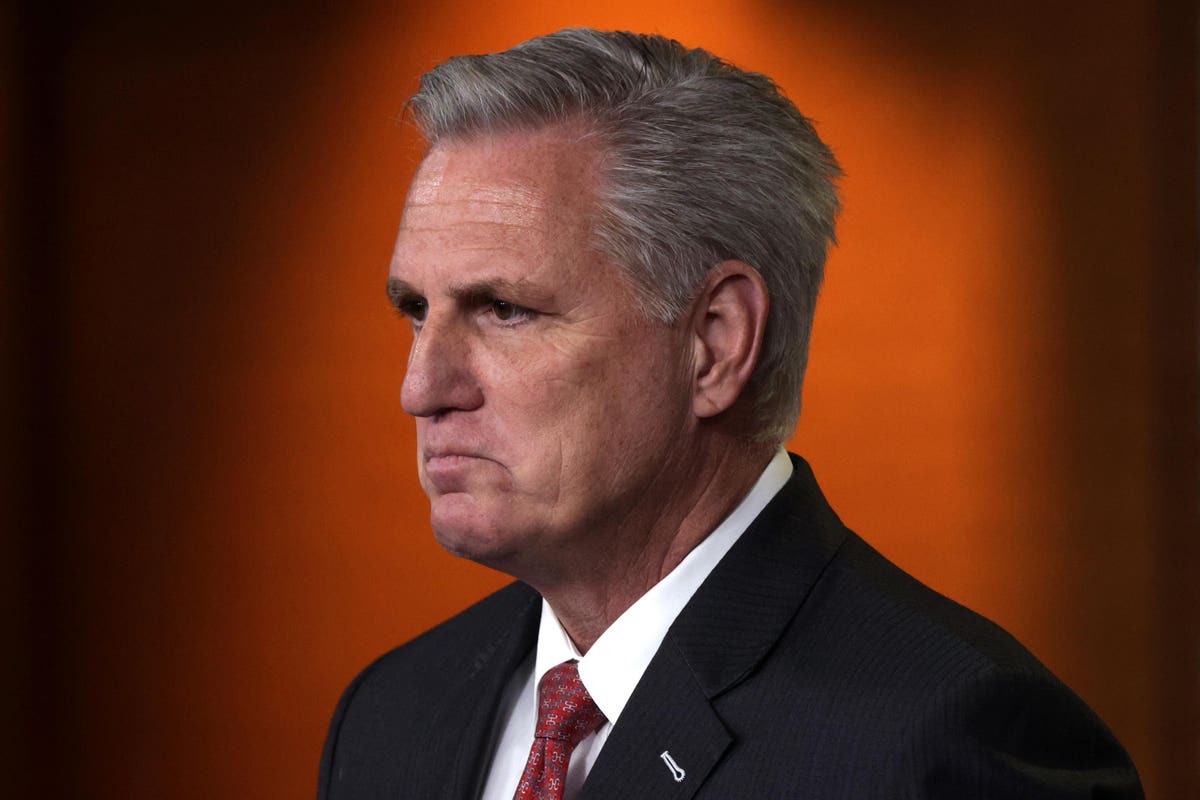Key Takeaways
- Kevin McCarthy Out As Speaker
- Interest Rates Moving Higher
- Dollar Strength Increasing
Tuesday saw stocks go from bad to worse. A stronger than expected JOLTs report showed the jobs market continues to stay strong. Yields began moving higher on the back of that report, sending stocks lower. Momentum then kicked in as rumors Kevin McCarthy would be removed from his Speaker of the House role gained traction. When it was all said and done on Tuesday, the S&P 500 was down 1.4%. The Nasdaq Composite lost 1.9%. The Dow Jones Industrial Average fell 1.3% and Kevin McCarthy was out of a job. The Dow has now given back all its gains on the year and as of Tuesday’s close, is down just under 0.5% for the year.
While the S&P 500 and Nasdaq are still holding on to strong gains this year, it’s important to note the concentration of those gains are in just a handful of stocks. In fact, 13% of the S&P 500 hit new 52-week lows on Tuesday. That is definitely something worth keeping an eye on because it could be suggesting this year’s gains are on shaky ground. More and more, this market is reliant on the so-called Magnificent Seven and just how long those stocks can carry this market remains to be seen.
As I mentioned, yesterday saw a stronger than expected JOLTs report. That report only makes Friday’s employment report that much more important. Analysts expect Friday’s report to show 163 thousand new jobs and an unemployment rate of 3.7%. Currently, according to the CME, chances of the Fed raising interest rates in November are just under 23% and there is a 38% chance of a rate hike in December. If Friday’s report comes in stronger than expected, I would expect those numbers to change, with probabilities of a hike increasing.
The bond market is already showing signs it expects rates to increase. The yield on 10 year notes closed Tuesday at 4.80%, its highest level since 2007. 30 year bonds are also pushing up against levels not seen in over a decade. The rise in rates helped push the U.S. dollar to a 10 month high. The velocity of the move higher in rates has taken a toll on regional banks this year. The S&P Regional Banking Index is down 32% on the year. Normally, higher rates are good for banks; however, the speed at which rates have increased has a number of these institutions borrowing money at higher rates than they already lent money out.
The fallout from higher rates and a strong dollar also stand to affect the upcoming earnings season. I fully expect we will hear about the drag of a strong dollar on international sales, both in the most recent quarter and also in forward looking guidance. At the same time, many of these companies that will be reporting have been able to raise inexpensive capital over the last decade through bond sales at low interest rates. It appears, for now at least, that era is over and the cost of capital is significantly more expensive. Therefore, I think it’s possible we could be in for a grim earnings season.
Arguably the biggest story out of Tuesday was the ouster of Kevin McCarthy. For the first time in U.S. history, the Speaker of the House was removed from office. With a potential government shutdown looming and Congress now in turmoil, there is cause for concern. That sent market volatility higher with the VIX briefly getting above 20 before closing at 19.78. The 20 level is a psychological threshold for the market and bulls would like to see the VIX stay below that level.
A couple other individual stories worth noting include Netflix
NFLX
Tuesday saw the S&P 500 come close to touching its 200 day moving average, after already having broken well below both the 21 and 50 day averages. The Nasdaq Composite is also below its 21 and 50 day averages, but well above its 200 day moving average. The combination of higher interest rates, strong dollar and chaos on Capitol Hill are clearly creating headwinds for this market. As we near 3Q earnings, I think the market has potential to become pretty volatile and therefore I want to emphasize something I say at the end of these columns. I would stick with your investing plans and long term objectives. Short term turbulence is just that, short term and can even prove opportunistic for investors.
tastytrade, Inc. commentary for educational purposes only. This content is not, nor is intended to be, trading or investment advice or a recommendation that any investment product or strategy is suitable for any person.
Read the full article here











Leave a Reply